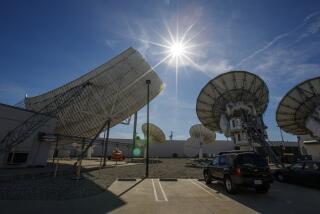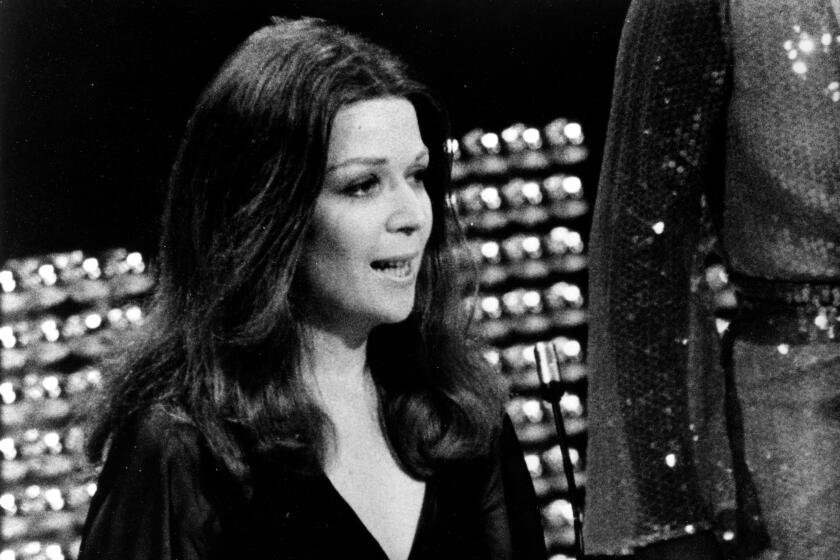Consumers and experts weigh in on AT&T-DirecTV deal
Top executives of AT&T and DirecTV are holding a call with investors Monday morning to pitch them on the mammoth $49-billion deal that will create the nation’s second-largest pay-television company.
But while Wall Street debates the merits of the combination, consumers are already having strong reactions.
“This is just another monopoly,” said Nate Scholz, a 30-year-old Marina del Ray resident. “When they do this, they take away the whole idea of a free market. DirecTV is already overpriced, and now they can do whatever they want and there’s nothing consumers can do about it.”
The purchase will turn AT&T into a massive player in the pay-television space as DirecTV has more than 20 million subscribers in the U.S. and an additional 18 million in Latin America.
For DirecTV, the deal will allow it to package its TV service with the telecommunication giant’s phone and broadband offerings. AT&T has almost 120 million wireless subscribers and 16.5 million broadband customers across the nation.
The sale comes just three months after cable giant Comcast Corp. struck a deal to acquire Time Warner Cable for $45.2 billion, which would be the nation’s largest cable operator with about 30 million subscribers. The combined company would also control 40% of homes with broadband Internet.
Media watchdogs and consumer advocates are worried about what that would do for competition.
“The industry needs more competition, not more mergers,” said John Bergmayer, senior staff attorney at Public Knowledge, a nonprofit public interest group that focuses on technology policy issues.
“The burden is on AT&T and DirecTV to show otherwise,” he said. “We’ll have to analyze this carefully for potential harms both to the video programming and the wireless markets.”
The deals by Comcast and AT&T are expected to spark even more consolidation. Other companies seen as potential merger candidates include satellite broadcaster Dish Network, telecom giant Verizon and cable operator Cox Communications.
There has even been talk that AT&T might quickly move to acquire Dish and then merge it into DirecTV.
But any kind of dealmaking is being met with concern. There’s already growing consumer frustration with not just the lack of choice, but that rates will go higher with just a handful of companies controlling pay TV.
“I feel like now the prices will go up even more and if you try to complain, they won’t care because they know there’s so few other places to go to,” said Tahlia Castillo, a 25-year-old Pasadena resident.
Castillo, who said she stopped paying for cable three years ago, relies on Netflix and Redbox.
“I really don’t know many people who pay for TV anymore,” she said.
AT&T executives pledge that the deal will be consumer friendly since it would transform the telecom giant into a one-stop shop for satellite-TV service, wireless, phone and fiber-optic broadband.
“Now I can get my Internet and cable together,” said William Gill, 31, who lives in the greater Wilshire area. “The bottom line is it’s a good call.”
The combined company would be able to bundle packages and give more options to millions of customers, and through thousands of retail stores across the country.
Analysts also believe that AT&T would be able to use its new heft to negotiate lower licensing fees with content providers. The same could be said for a combined Comcast and Time Warner Cable.
These will be among the arguments when regulators, including the Federal Communications Commission and Justice Department, begin to weigh the two deals. Executives from AT&T and Comcast believe the process will take about a year to complete.
Though both deals are huge in price and scope, they are expected to be deliberated differently because of their structure.
FCC commissioners are being asked to approve Comcast’s bid to take out another giant rival in pay TV and broadband Internet. However, the cable companies don’t directly compete in major markets.
AT&T and DirecTV executives said Sunday their companies don’t compete. AT&T has a small toehold in cable service via its fiber-optic lines, while DirecTV is not a competitor in offering broadband services.
More to Read
From the Oscars to the Emmys.
Get the Envelope newsletter for exclusive awards season coverage, behind-the-scenes stories from the Envelope podcast and columnist Glenn Whipp’s must-read analysis.
You may occasionally receive promotional content from the Los Angeles Times.











